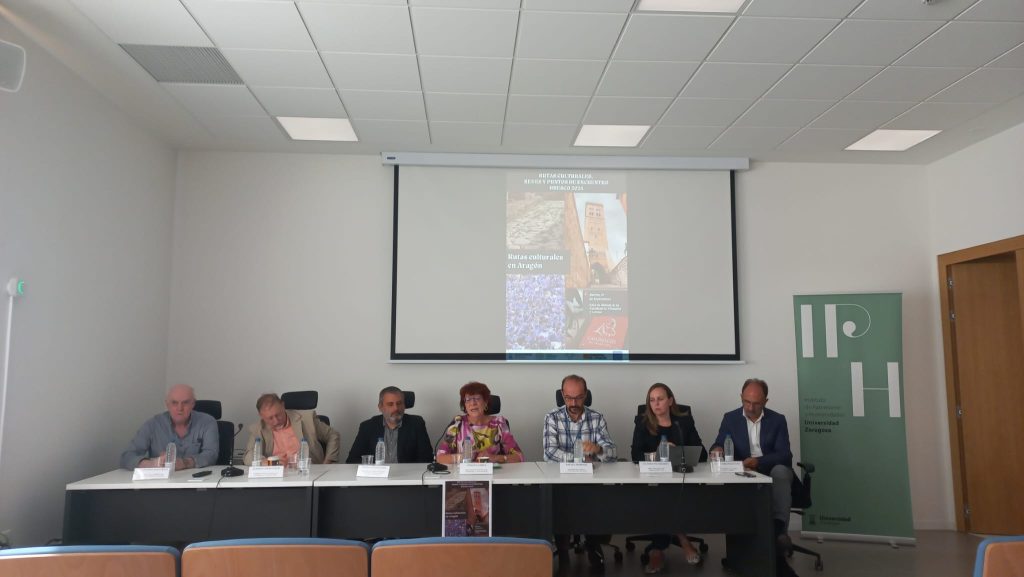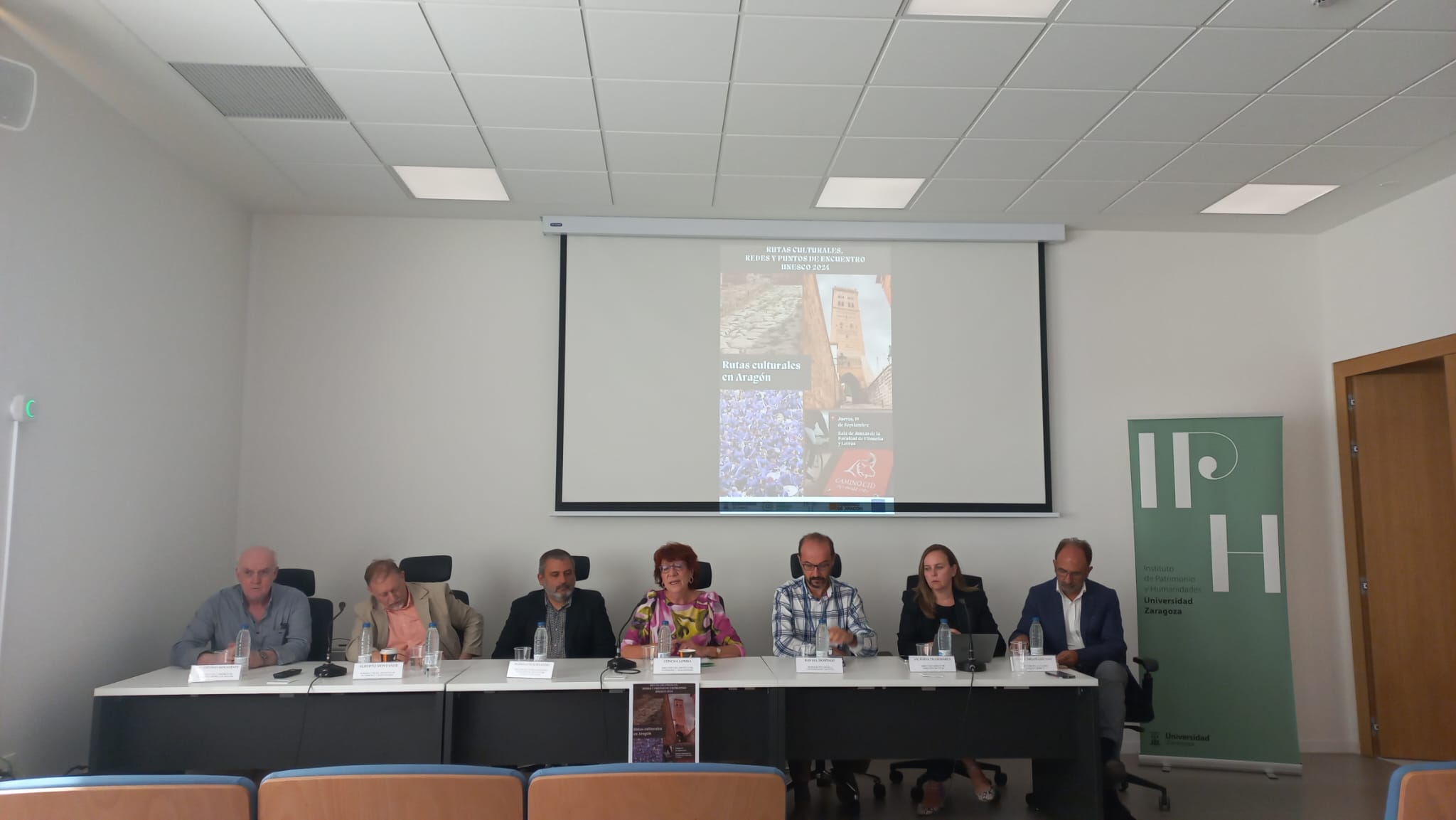
The Institute of Heritage and Humanities (IPH), in collaboration with the Gonzalo Borrás Chair and the Government of Aragon, joins the celebration of the European Heritage Days, a joint action of the Council of Europe and the European Union.
It has done so with a reflection on a selection of four particularly significant and singular cultural routes in our Autonomous Community: the Mudejar, the Iberian Heritage, the Cid and the Drum and Bass Drum.
At the meeting held today, the director of Territorio Mudéjar, Victoria Trasobares, took part in the round table discussion “Routes as a heritage management system” moderated by the director of the IPH Concha Lomba and together with Juan Carlos Lozano, Director of the Gonzalo Borrás Chair; Pedro Luis Hernando, Director of the Centro de Estudios Mudéjares del Instituto de Estudios Turolenses, José Antonio Benavente, Manager of the Consorcio Patrimonio Ibérico de Aragón; Alberto Montaner, Professor at the University of Zaragoza and Rafael Antonio Domingo, Professor at the University of Zaragoza.
Victoria Trasobares explained the Territorio Mudéjar route model, which is proving to be a success with the public and its impact on the localities, is the repercussion of the management project that the organisation has implemented through collaboration between town councils and is making it possible to disseminate heritage, presenting on the ground the research and preventive conservation projects linked to it and attracting both the general public and the specialised/scientific public through routes à la carte. This year’s conference coincides with the 75th anniversary of the Council of Europe and the 70th anniversary of the European Cultural Convention, and will be dedicated to Heritage of Routes, Networks and Connections, with the specific aim of showing not only the capacity of Cultural Heritage to create connections and links between different communities, peoples and countries, but also the need to work in a coordinated way to optimise resources and achieve greater achievements in an increasingly globalised and technified world.
